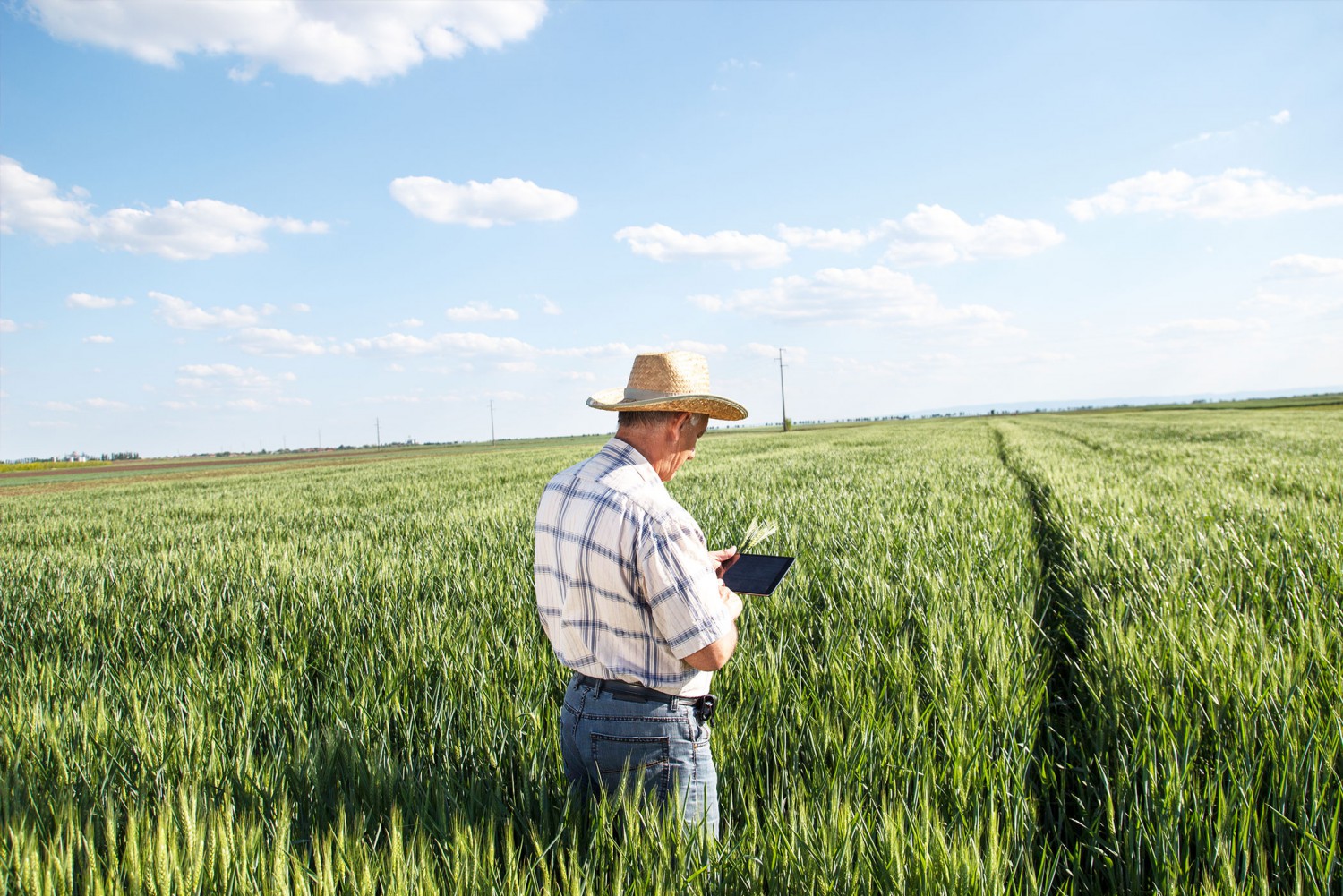The COVID-19 pandemic requires the agri-food industry to rethink its modus operandi, paving the way for private investments to pursue a digital transformation of food systems towards an economic, social and environmental sustainability - a new approach that talented and visionary people can implement.
It is far from business as usual across the world. The COVID-19 pandemic fundamentally changed our lives. Even the most essential works, such as farming and agribusiness, have suffered. Some farmers, warehouses, wholesalers, processors, and retailers are going into the season unknowing if there will be a productive 2021 season, but they keep grinding. In the last few months, customers may have seen some empty shelves in supermarkets and grocery stores, especially in the countries most affected by the current health crisis. However, despite uncertain times, world’s farmers keep operating diligently in their fields, working hard to feed other people. Soon, they will likely be rewarded for their efforts.
The uncertain future is destabilizing the economy and putting farmers’ income and agribusiness companies’ revenue at risk. The crisis has disrupted global trade and slowed demand for agricultural export products, putting jobs at risk. However, with challenges come opportunities. American family farmers have recently called for a more sustained focus on stimulating economic growth with public and private funds. Governments and private-sector actors are responding worldwide, but there are growing concerns that the numerous multi-billion dollars fiscal and monetary stimulus packages will not be enough long-term. What is needed is a new vision that talented and visionary people can implement.
How Governments and Private Companies Can Help Promote the Transition
It will take time to re-establish supply chains and markets. However, effective private and public sectors measures would help speed up recovery when the “next normal” comes. If governments and firms act now, they can minimize disruptions to agricultural and food systems. To do this, they need to surround themselves with professionals in the environmental and digital transition, something that a team of highly experienced recruitment specialists can help achieve.
“There is no room for complacency,” says McKinsey Global Institute study. It is time to take advantage of the current situation to change the basic structure of agricultural activities, promoting the transition to a more digital and sustainable industry. Advanced data analytics can reshape the whole string of markets within the agriculture value chain. Digitalization may help optimize farm production processes, improve risk management, predict market trends and enhance strategic decision-making capabilities.
The agribusiness industry has reached a crossroads. It needs to rethink its modus operandi, paving the way for private investments to pursue a digital transformation of food systems leading to economic, social and environmental sustainability.
Agribusiness, the Crisis Is Set to Accelerate a Push for Sustainability and Digitalization
Sustainable agriculture is vital to overcome climate change and hunger challenges, says the United Nations Department for Economic and Social Affairs. It is especially true in difficult times like these. Given its capacity to help the farming sector improve its sustainability and recover from the outbreak’s impact, digital farming is set to boom in the aftermath of the COVID-19 crisis.
In Europe, the promotion of the digitalization of agribusiness is a crucial part of the EU’s recovery plan post-coronavirus. The Farm to Fork strategy emphasizes that “all actors in the food chain should harness technological and digital solutions to deliver on sustainability goals.” They will support the digital transformation of farms, and they will “help farmers better use data to improve their environmental performance” via the Common Agricultural Policy (CAP) and funding from Horizon Europe.
John Raines, chief commercial officer at The Climate Corporation (Bayer), said that “Digitalization allows for a greater level of insight on farms. The more information we have, the better we can mitigate risk in an inherently risky business, which drives productivity and higher yields.”
The Benefits of Transforming Food Systems in Africa
Agriculture is one of Africa’s most important economic sectors, making up 23 per cent of the continent’s total GDP and providing work to the majority of the population in an economic powerhouse like South Africa. According to McKinsey estimates, Africa’s exports of food and agricultural products are worth between $35 billion and $40 billion a year. Besides, Africa’s food and farming imports amount to between $45 billion and $50 billion a year – along with $6 billion a year in imports of farming inputs.
Key steps include safeguarding food security, understanding and managing the forces that shape demand, and ensuring that agribusiness production is running as usual. It will also be paramount to maintain trade flows, including keeping regional and international borders open for trade as far as possible. But most of all, companies along the value chain should plan ahead to reevaluate for the long-term. McKinsey advises agricultural companies to consider four actions:
- Manage localized supply-chain bottlenecks that are likely to persist until the end of 2020 – or into 2021.
- Prepare for demand depression, mainly for export commodities and for food products among the low-income urban population and hospital industry.
- Embrace digitization right along the value chain.
- Explore new mergers and acquisitions (M&A) and diversification, including going beyond borders.
The pandemic provides opportunities for transforming food systems in the region, where more and more countries are beginning to focus on agriculture as the next alternative. While the epidemic has led to disruption, it has also thrown into sharp relief the strategic importance of agriculture and agribusiness.
Boston Consulting Group sees a positive growth in the long term for the whole industry. “Nations around the world will seek to offer further support to their agriculture sectors in order to shorten supply chains and better secure and improve the resilience of their food supplies.”
Together with the push to meet sustainable-agriculture goals and implement new agricultural technologies, this will open up opportunities to increase revenues for every segment of the agriculture value chain.















